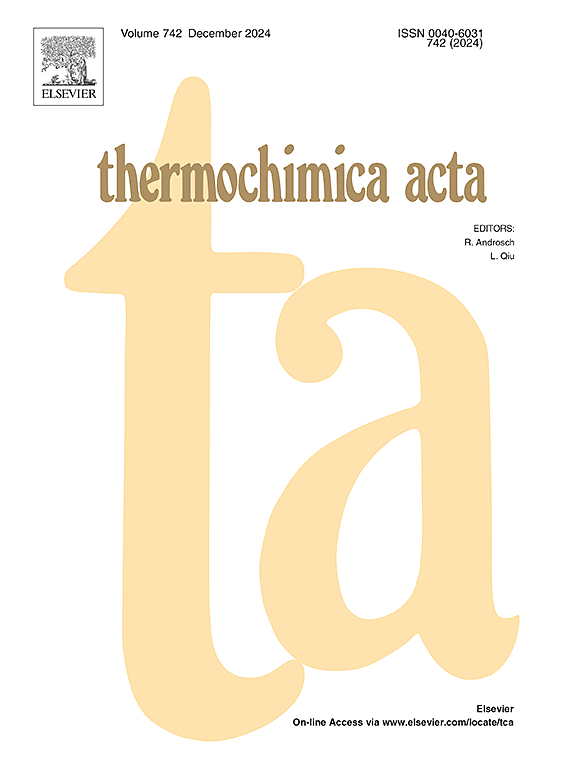MALDI-MS中离子基质的热稳定性。固态与经典矩阵的比较研究
IF 3.1
2区 化学
Q2 CHEMISTRY, ANALYTICAL
引用次数: 0
摘要
基质辅助激光解吸/电离(MALDI)依赖于基质对激光能量的快速吸收,引发在高真空室中发生的一系列事件,包括能量再分配、温度升高、分析物和基质的解吸及其电离。本研究考察了经典酸性MALDI基质(E-辛子酸(ESA)、E-阿威酸(EFE)、E-对香豆酸(ECUM)和E-α-氰基-4-羟基肉桂酸(ECHCA))、它们的z -异构体(ZSA、ZFE、ZCUM)以及它们与有机胺离子基质(IMs)形成的盐的热行为。通过TGA, DSC和1H NMR,我们观察到邻位/对取代的具有给电子基团的e -肉桂酸通过脱羧热分解生成苯乙烯衍生物。与晶体基质相比,IMs具有较低的熔融和分解温度,从而改善了解吸/电离过程。然而,在连续的激光照射下,IMs显示出较低的分析物信号稳定性,可能是由于热分解增加。本文章由计算机程序翻译,如有差异,请以英文原文为准。

Thermal stability of ionic matrices for MALDI-MS. A comparative study in solid state with classical matrices
Matrix-Assisted Laser Desorption/Ionization (MALDI) relies on the rapid absorption of laser energy by the matrix initiating a succession of events occurring in a high-vacuum chamber, including energy redistribution, temperature increase, analyte and matrix desorption, and their ionization. This study investigates the thermal behavior of classical acidic MALDI matrices (E-sinapinic acid (ESA), E-ferulic acid (EFE), E-p-coumaric acid (ECUM), and E-α-cyano-4-hydroxycinnamic acid (ECHCA)), their Z-isomers (ZSA, ZFE, ZCUM), and their salts formed with organic amines called ionic matrices (IMs). Using TGA, DSC, and 1H NMR spectroscopy, we observed that ortho/para-substituted E-cinnamic acids with electron-donating groups thermally decompose via decarboxylation to produce styrene derivatives. IMs exhibited lower melting and decomposition temperatures compared to the crystalline matrix, improving the desorption/ionization process. However, IMs demonstrated lower analyte signal stability under successive laser shots, likely due to increased thermal decomposition.
求助全文
通过发布文献求助,成功后即可免费获取论文全文。
去求助
来源期刊

Thermochimica Acta
化学-分析化学
CiteScore
6.50
自引率
8.60%
发文量
210
审稿时长
40 days
期刊介绍:
Thermochimica Acta publishes original research contributions covering all aspects of thermoanalytical and calorimetric methods and their application to experimental chemistry, physics, biology and engineering. The journal aims to span the whole range from fundamental research to practical application.
The journal focuses on the research that advances physical and analytical science of thermal phenomena. Therefore, the manuscripts are expected to provide important insights into the thermal phenomena studied or to propose significant improvements of analytical or computational techniques employed in thermal studies. Manuscripts that report the results of routine thermal measurements are not suitable for publication in Thermochimica Acta.
The journal particularly welcomes papers from newly emerging areas as well as from the traditional strength areas:
- New and improved instrumentation and methods
- Thermal properties and behavior of materials
- Kinetics of thermally stimulated processes
 求助内容:
求助内容: 应助结果提醒方式:
应助结果提醒方式:


